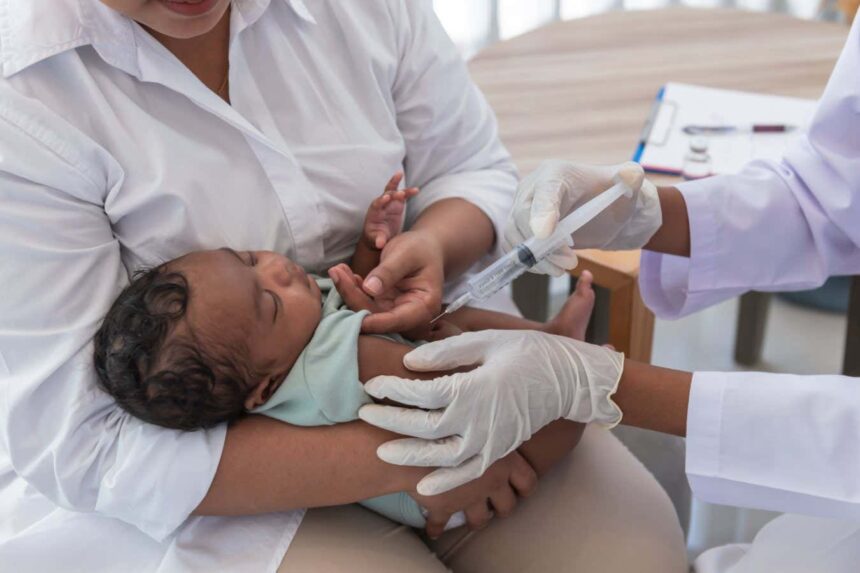
A one-time antibody injection against RSV is available for infants in some countries
Shutterstock / Anatta_Tan
An antibody treatment for respiratory syncytial virus (RSV) appears to be more effective at protecting infants from severe illness than vaccination during pregnancy.
About 100,000 children worldwide under the age of 5 die from RSV each year. Currently, there are only two ways to immunise infants against the virus. The first is a vaccine given during pregnancy, which passes antibodies to the fetus and protects babies for the first six months of life. The second is a one-time antibody injection, called Beyfortus, administered to infants shortly before their first RSV season or within one week after birth.
Both therapies only became available recently. For example, the US Food and Drug Administration approved Beyfortus for infants in July 2023 and the maternal vaccine a month later. The therapies are approved elsewhere too, including in Australia, Japan and several European countries.
Oliver Martyn at the French pharmaceutical company Sanofi and his colleagues used real-world data to better understand the efficacy of each approach. Sanofi manufactures Beyfortus in collaboration with the UK biotechnology company AstraZeneca.
The researchers analysed RSV hospitalisation rates in the UK and Spain among infants 1 year old and younger between June 2022 and May 2025. During the 2024 to 2025 RSV season, the UK offered only the maternal RSV vaccine to protect infants. Meanwhile, Spain offered only Beyfortus through its public healthcare system; the maternal RSV vaccine could be purchased there by private prescription.
Infant RSV hospitalisations fell 69 per cent in Spain during the 2024 to 2025 season compared with the 2022 to 2023 season, when immunisation therapies were unavailable. Rates decreased almost 27 per cent in the UK over the same time period. The finding, presented by Martyn at a 29 May meeting of the European Society for Paediatric Infectious Diseases in Romania, suggests antibody treatment better protects infants from severe RSV than maternal vaccination.
However, direct comparisons between two countries are difficult, given their populations and healthcare systems differ. For instance, Spain began administering Beyfortus to infants in 2023 whereas the UK only launched its maternal vaccination programme in 2024. As a result, Spain’s healthcare system had more familiarity with the RSV treatment, so rolling it out may have gone more smoothly. RSV seasons also varied during the covid-19 pandemic, with some starting earlier in the year than normal, making it challenging to compare hospitalisations across seasons.
The study also included infants whose mothers were ineligible for maternal vaccination in the UK “and thus underestimated the impact” of it, says a spokesperson for Pfizer, the US biotechnology company that developed the maternal RSV vaccine.
“You have to take these results with a grain of salt,” says Jennifer Duchon at the Icahn School of Medicine at Mount Sinai in New York, noting there are probably multiple factors behind the discrepancy in hospitalisations between the two countries. “[Most] data that we have so far, including clinical trials, shows that, especially in the youngest of infants, for the most severe outcomes, the products are functionally equivalent,” she says.
Topics:








